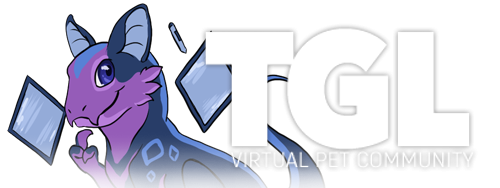Recurrence
New member
Do you prototype your game, or do you have a different approach to game design? Just a few months ago, we were merrily skating by with our trusty workflow: spout cool ideas → tidy the ideas into neat bullet points → immediately program it → playtest the code (curiously like the waterfall model). Do you find this sort of workflow is sufficient for implementing certain features / your whole game?
When we tried this, we ultimately found the design feedback loop was too slow. The more complex the feature, the more time it required playtesting to gauge the gameplay and probe the edge cases. It’s also harder to independently assess individual aspects of a game mechanic (for training mechanics: imagine separately testing the choice of which stats pets should have, how players increase those stats, what those stats affect, how often pets can be trained, etc.). And it’s costlier to test slight tweaks & variations, what with the burden of programming each change.
How we’re (experimentally!) prototyping our game
Forums! They’re perfectly suited for persistent, browser-based games (PBBGs) and turn-based games. Think old-school, non-automated sim games run off of bulletin-board-style forums. Makes the design work fun and instantly playable.
Here’s what our forum prototype looks like: Link to a screenshot of our brainstorm/prototype forum (organized into the categories: Registry, Baking District, Marketplace, Ba king District, Competition Coliseum, Out Of This World)
king District, Competition Coliseum, Out Of This World)
We’ve been designing a litter of tiny, simplistic, bare-bones prototypes that isolate one key problem. Each tiny prototype ages through multiple developmental loops (problem statement → brainstorm a prototype → test it → analyze it → increase the scope → make a new one!), growing larger and gaining complexity. (The quicker you loop, and the more you can loop, the more efficiently you’re gaining information about your mechanic!)
So far, we’ve come up with the following game mechanic prototypes:
Utilizing prototypes helped us break through feelings of being stuck or blanking out while designing, and it’d be good to hear others’ solutions! How do you prototype your game?
When we tried this, we ultimately found the design feedback loop was too slow. The more complex the feature, the more time it required playtesting to gauge the gameplay and probe the edge cases. It’s also harder to independently assess individual aspects of a game mechanic (for training mechanics: imagine separately testing the choice of which stats pets should have, how players increase those stats, what those stats affect, how often pets can be trained, etc.). And it’s costlier to test slight tweaks & variations, what with the burden of programming each change.
How we’re (experimentally!) prototyping our game
Forums! They’re perfectly suited for persistent, browser-based games (PBBGs) and turn-based games. Think old-school, non-automated sim games run off of bulletin-board-style forums. Makes the design work fun and instantly playable.
Here’s what our forum prototype looks like: Link to a screenshot of our brainstorm/prototype forum (organized into the categories: Registry, Baking District, Marketplace, Ba
We’ve been designing a litter of tiny, simplistic, bare-bones prototypes that isolate one key problem. Each tiny prototype ages through multiple developmental loops (problem statement → brainstorm a prototype → test it → analyze it → increase the scope → make a new one!), growing larger and gaining complexity. (The quicker you loop, and the more you can loop, the more efficiently you’re gaining information about your mechanic!)
So far, we’ve come up with the following game mechanic prototypes:
- breeding: your only game action is to pair cats, with time sped up so each RL day = 1 game month
- training:
with a simple premise (link to screenshot!), there are 2 actions per game month, choose-your-own-adventure style
- building off the problems discovered in the first prototype, the 2nd prototype introduces seasons & alternative outcomes
- a prototype focusing on one central verb [e.g. paying coins in the Kingdom series (the pixel art management game, that is), or portalling in the Portal series]—in our case, it’s “feeding”
- a prototype further exploring cat autonomy
- three competition prototypes, one of which focuses on optimally pairing pets with competitions (under the motto “there is a place for each to excel”)
Utilizing prototypes helped us break through feelings of being stuck or blanking out while designing, and it’d be good to hear others’ solutions! How do you prototype your game?
